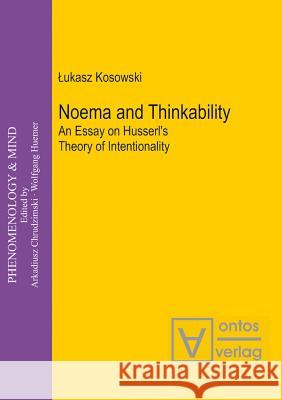Noema and Thinkability: An Essay on Husserl's Theory of Intentionality » książka
Noema and Thinkability: An Essay on Husserl's Theory of Intentionality
ISBN-13: 9783110324983 / Angielski / Twarda / 2010 / 204 str.
The years of study on Husserl's theory of intentionality have led to a number of non-equivalent interpretations. The present work attempts to investigate the most prominent of these by presenting both their advantages and difficulties. However, its key point is specifically the analysis of Husserl's theory. This is made in several stages that are concerned with the relation between noesis and noema: whether it is one-to-one or many-to-one, the kind of transcendency and dependency between them, and whether noema supervenes on noesis. Moreover, Husserl's theory is also examined in--usually ignored--instances of contradiction, nonsense and intentional conflict. The outcome is a fresh reading in which noema occurs as the possibly thinkable content capable of constituting multi-objective references and composed of pure X explained in terms of syntactic matter and form.











